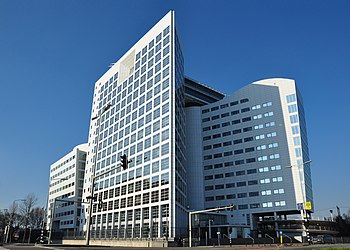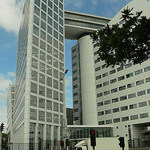Retaliation Against Palestine’s Welcome Accession to ICC Must Stop

Israel, the USA and EU member states must refrain from punishing or threatening Palestine for taking the positive step of granting the International Criminal Court (ICC) jurisdiction over crimes under international law in the Occupied Palestinian Territories (OPT), Amnesty International said today.
Amnesty International welcomes Palestine¹s accession to the Rome Statute of the ICC, which provides an opportunity for thousands of victims of crimes under international law in the OPT and Israel to gain access to justice. An ICC investigation could be the last chance to ensure that perpetrators of serious crimes, including war crimes and crimes against humanity, by all parties to the Israeli-Palestinian conflict, are held accountable. It calls on all members of the international community to support this important step towards achieving justice and to reject and condemn any attempts to block the pursuit of accountability.
Palestinian President Mahmoud Abbas signed an instrument of accession on 31 December 2014, transmitting it to the UN Secretary-General on 2 January 2015. On 1 January, Palestine also submitted a declaration to the ICC accepting retroactive jurisdiction from 13 June 2014 pursuant to Article 12(3) of the Rome Statute. Both steps purport to cover crimes committed throughout the OPT, including East Jerusalem. The additional declaration means the ICC could investigate alleged crimes during and after the conflict of July and August 2014. On 6 January, the UN Secretary-General confirmed receipt of the submission from Palestine, which will join the ICC on 1 April 2015.
While Amnesty International welcomes Palestine¹s accession, it notes that the additional declaration accepting ICC jurisdiction over crimes committed since 13 June 2014 is unnecessarily narrow. Amnesty International calls on Palestine to reissue a declaration along the lines of it its January 2009 one, which accepted the ICC¹s jurisdiction over crimes committed on ³the territory of Palestine since 1 July 2002². Meanwhile, Amnesty International continues to urge the ICC Prosecutor to seek a judicial determination on the validity of the prior declaration, pursuant to Article 19(3) of the Rome Statute.
Retaliation

Amnesty International is concerned that Israel has already taken a punitive step against Palestine for granting the ICC jurisdiction over crimes under international law in the OPT and that the USA and EU member states may do likewise.
On 1 January, a day after the Palestinian President signed the instrument of accession to the Rome Statute, Israel suspended the payment of around US$127 million in tax revenues due to the Palestinian authorities. The refusal by Israel to transfer the funds punishes the civilian population. In Gaza, the population has already suffered the effects of the seven-year Israeli imposed blockade and recurrent conflicts. Only four days before, on 28 December 2014,
Gaza¹s only power plant closed after the fuel finally ran out, lengthening the power cuts which Gazans endure from an average of 12 to 18 hours a day. Israel forces had struck the plant on 29 July in an attack which is likely to have constituted a war crime.
Meanwhile, the USA may invoke a law passed by Congress in December which requires the government to stop its annual Economic Support Fund aid (amounting to $500 million) to the Palestinian authorities if ³the Palestinians initiate an International Criminal Court judicially authorized investigation, or actively support such an investigation, that subjects Israeli nationals to an investigation for alleged crimes against Palestinians.² If the USA follows through on this threat, it would harm the civilian population in the OPT, many of whom subsist on this aid.
In addition to Israel and the USA, EU member states and Canada – ostensibly staunch supporters of the ICC – have consistently pressured the Palestinian authorities not to take steps to grant the ICC jurisdiction in recent years; such pressure has included threats to withdraw financial assistance on which the Palestinian authorities depend. In July 2014, the EU Foreign Affairs Council warned the Palestinian authorities ³to use constructively its UN status [which it obtained in 2012] and not to undertake steps which would lead further away from a negotiated solution.² Joining the Rome Statute was considered such a step; influential EU member states, including the UK and France, had publicly opposed Palestine seeking access to the ICC.
Meanwhile, EU member states have called for ICC investigations in other countries of the region and repeatedly stressed the importance of the ICC. In December 2014, for example, a UK Foreign Office Minister described the ICC as ³absolutely vital² to the ending of impunity, during a speech to the Assembly of States Parties to the ICC. Amnesty International agrees, and it is therefore vital that EU member states withdraw their warnings and any outstanding threats, and demonstrate consistent support for the rights of all victims of crimes under international law, including Palestinian and Israeli victims, to justice and reparations. In addition, cutting aid is likely to exacerbate the already dire humanitarian situation in the OPT.
Ongoing impunity for crimes in Israel and the OPT
During the 50-day conflict between Israel and Gaza in July and August 2014, which was codenamed Operation Protective Edge, over 1,500 civilians, including more than 500 children, in Gaza and six civilians in Israel were killed, while there was massive destruction and damage to civilian homes, businesses and infrastructure in Gaza. Both sides committed serious violations of international humanitarian law, including war crimes. Israeli forces carried out attacks on inhabited homes, in some cases killing entire families, and on medical facilities and schools, as well as deliberately destroying homes and civilian infrastructure. Hamas and Palestinian armed groups in Gaza fired thousands of indiscriminate rockets and mortar rounds into civilian areas of Israel.
The suffering for Palestinians in Gaza caused by the 50-day-conflict is compounded by the ongoing Israeli blockade, and the legacy of previous conflicts, which have had a devastating effect on the civilian population. Before the most recent conflict, Israeli restrictions on entry into Gaza of construction material meant that 75,000 housing units and 259 schools destroyed during previous conflicts had yet to be re-built. During Operation Protective Edge, over 118,000 housing units were damaged or destroyed. At the end of November, the UN estimated that 19,600 families were displaced, many living in unsustainable conditions.
Israel has steadfastly denied access to Gaza to the UN Commission of Inquiry that was appointed by the UN Human Rights Council ³to investigate all violations of international humanitarian law and international human rights law in the [OPT] in the context of the military operations conducted since 13 June 2014² and is currently examining such violations by all parties to the conflict. Further, it continues to deny access to Gaza to Amnesty International and other international human rights organizations that are researching allegations of serious violations of international human rights and humanitarian law during the conflict.
Over several decades, Amnesty International and other human rights organizations have collected compelling evidence of war crimes and other crimes under international law committed by Israel, Hamas and Palestinian armed groups. However, perpetrators on both sides continue to enjoy impunity as both Israeli and Palestinian authorities have failed over many years to bring justice, truth and reparation to victims of crimes under international law.
Background
The Palestinian authorities had previously indicated their interest in joining the Rome Statue and during the conflict in July and August 2014 senior Palestinian officials announced an intention to do so. Most recently, on 8 December 2014, Palestine¹s request for observer status for the session of the Assembly of State Parties to the ICC was approved by the Assembly.
Palestinian President Abbas signed the instrument of accession to the Rome Statute the day after the UN Security Council¹s rejection on 30 December of a draft resolution proposed by Jordan calling for an end to Israel¹s occupation of the OPT by the end of 2017. Eight countries voted in favor while the USA and Australia voted against. The UK, Rwanda, Nigeria, Lithuania, and South Korea abstained.
Israel participated in the negotiations leading to the ICC¹s establishment but in 2002 stated that it would not ratify the Rome Statute.


- Israelisnipers shooting and killing hospital workers in Gaza - December 11, 2023
- CAIR Condemns Israeli Executions of Wounded, Unarmed Palestinian in West Bank - December 11, 2023
- Arab and Muslim American voters face a “simple choice” between Biden’s inhumanity and Trump’s edgy politics - December 9, 2023


























Palestinians should not be punished when their leaders use diplomacy and
appeal to the rule of law to try to secure basic human rights for their
people.
Please sign Petition to
The United States House of Representatives, The United States Senate, and President Barack Obama: Don’t Punish Palestinians for Joining the ICC
http://petitions.moveon.org/sign/dont-punish-palestinians?source=c.url&r_by=1135580